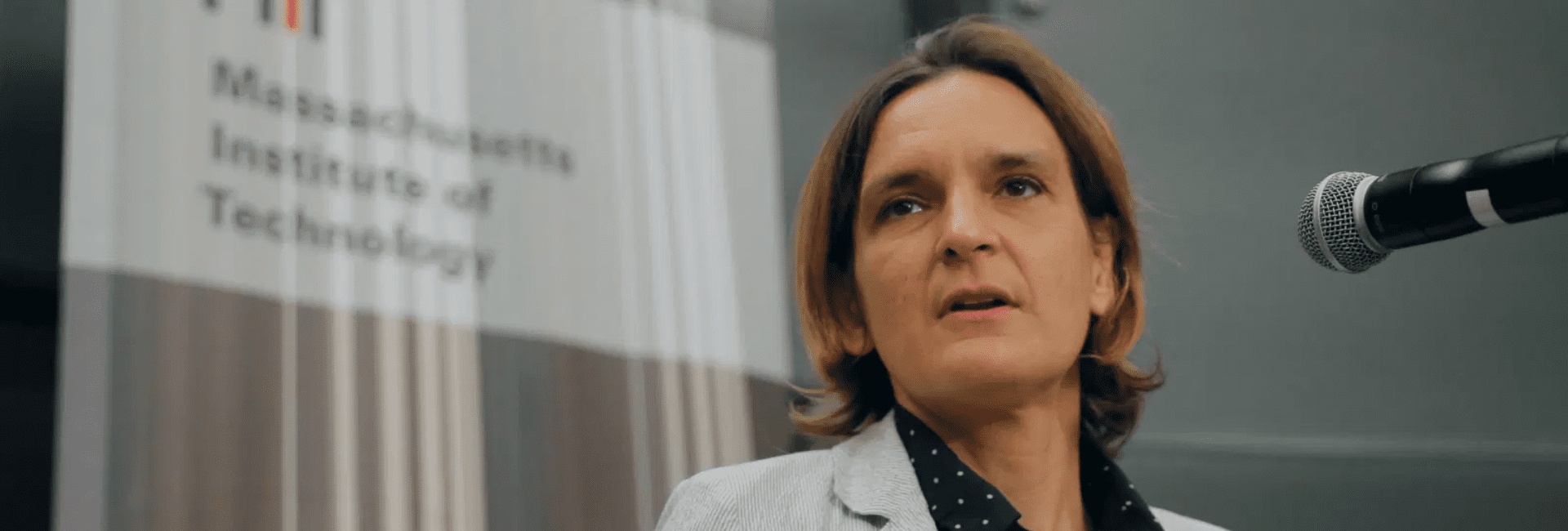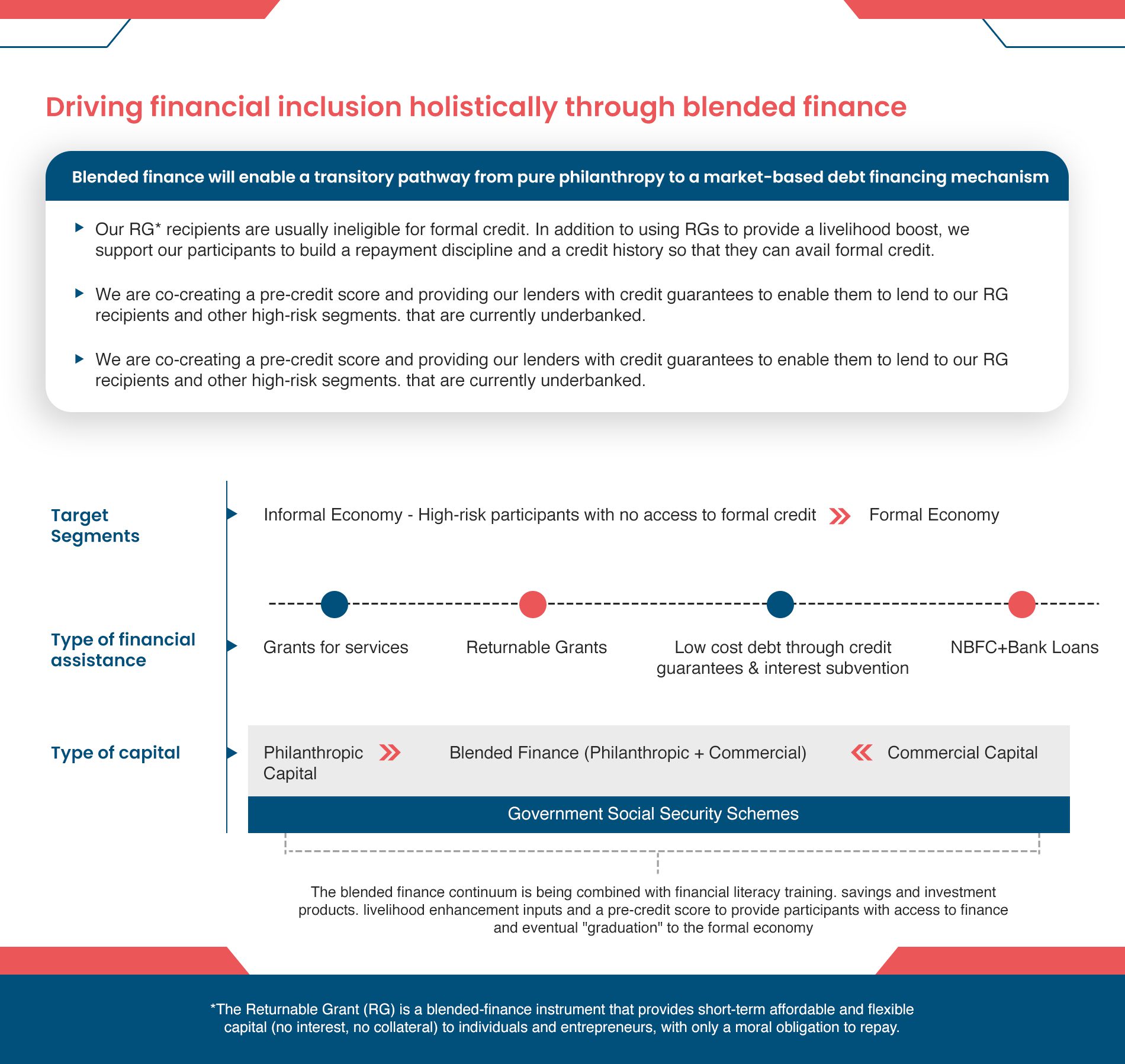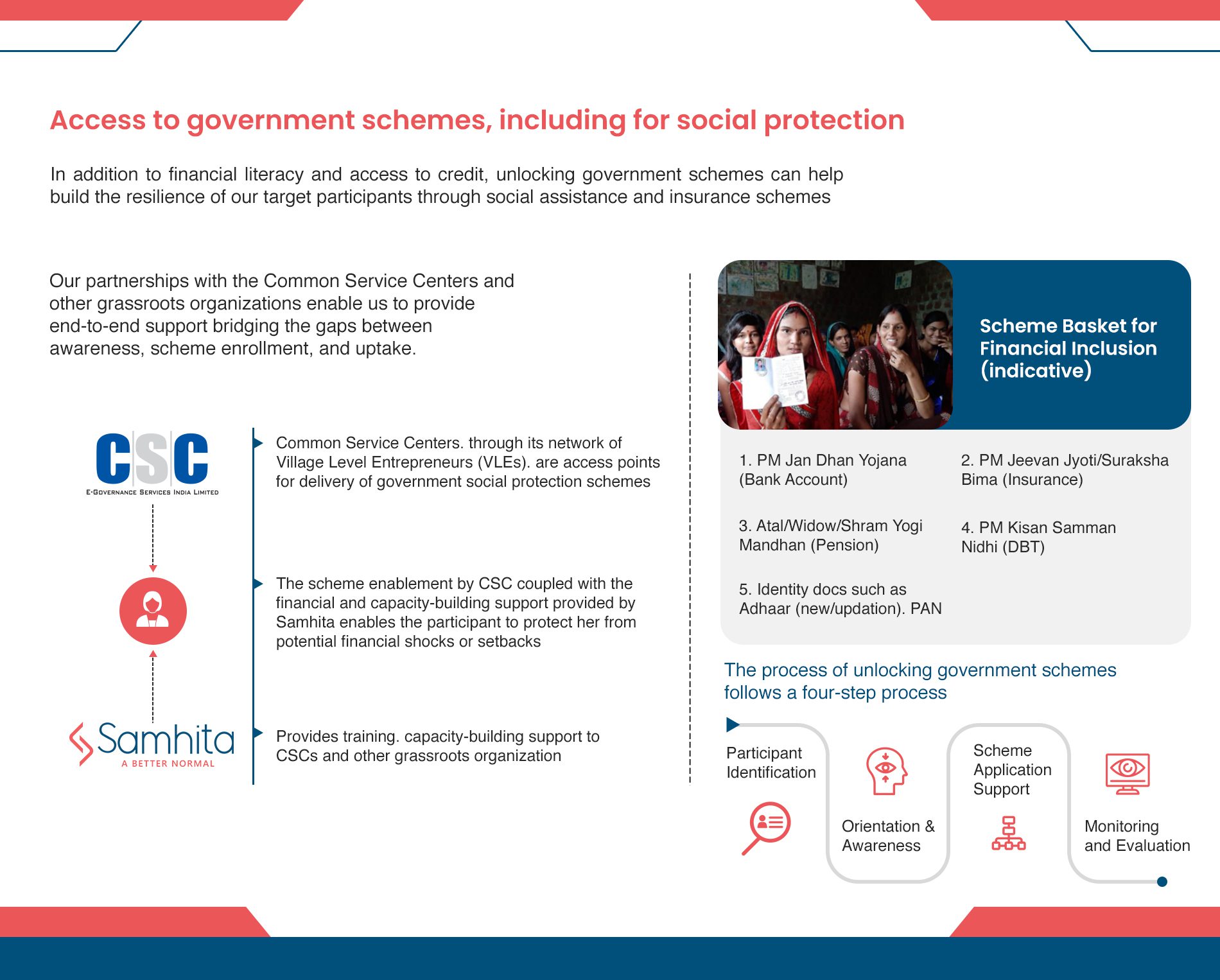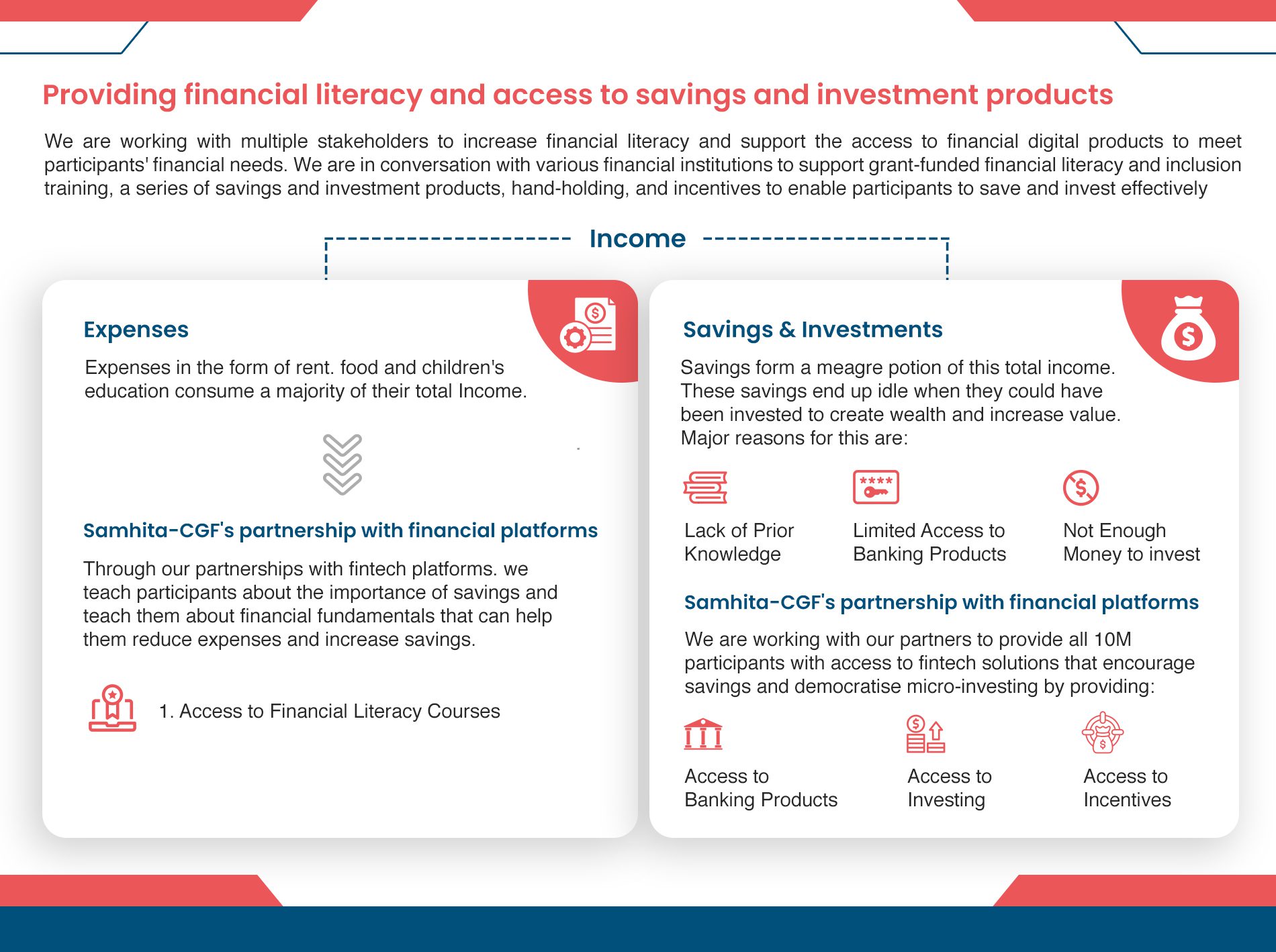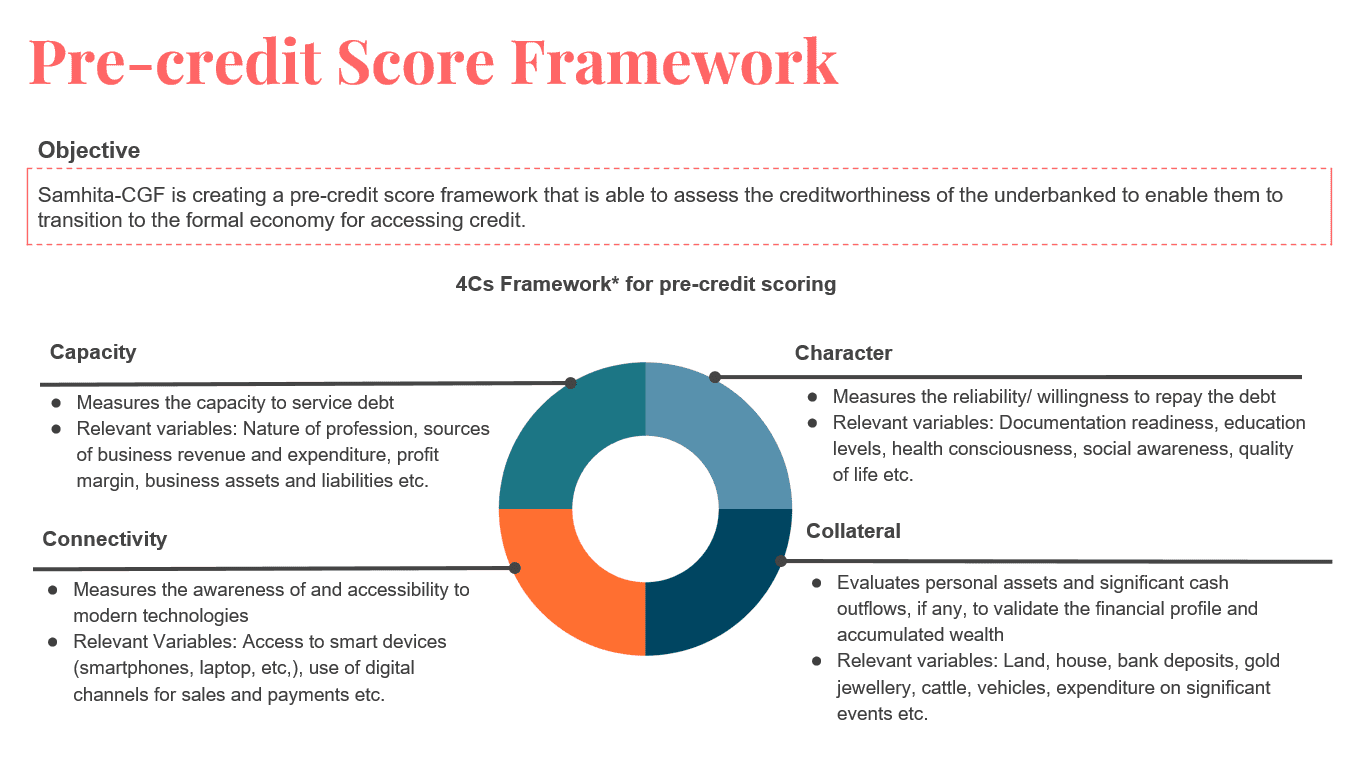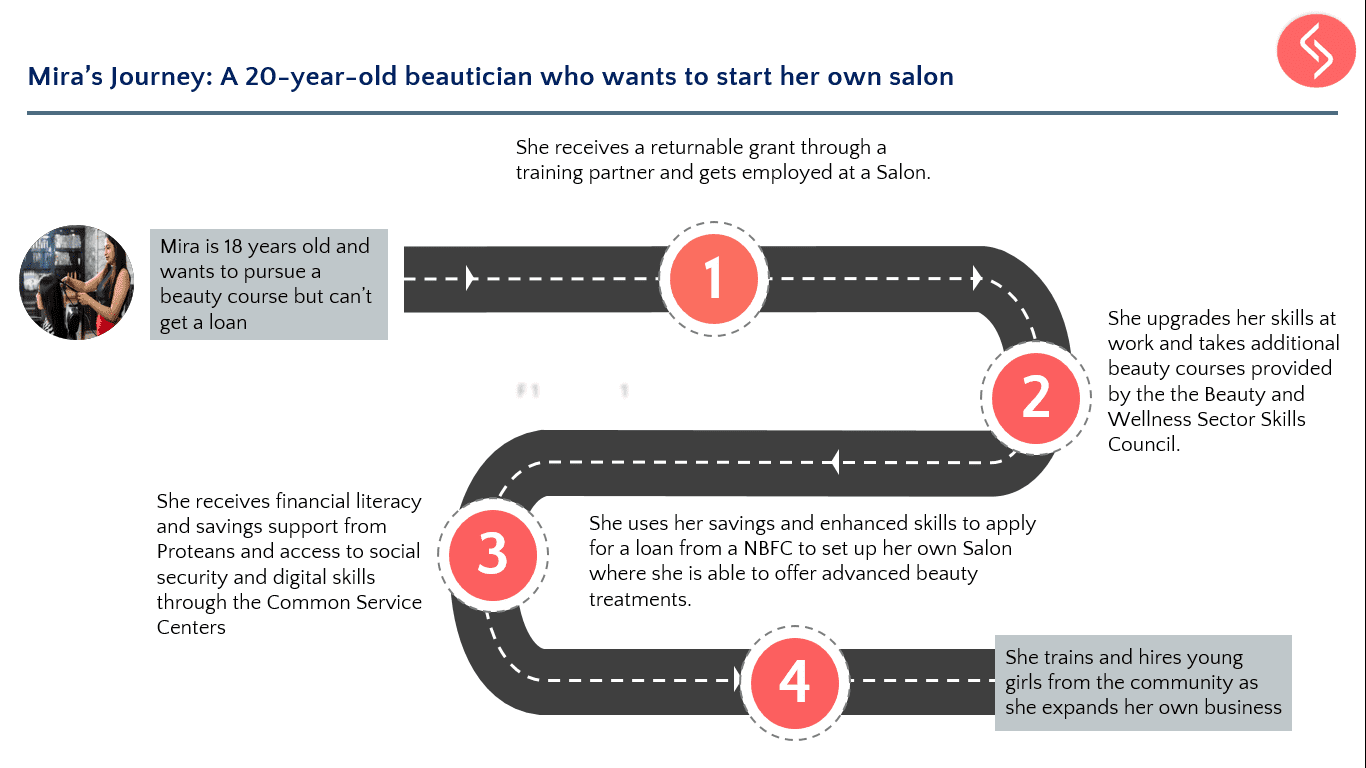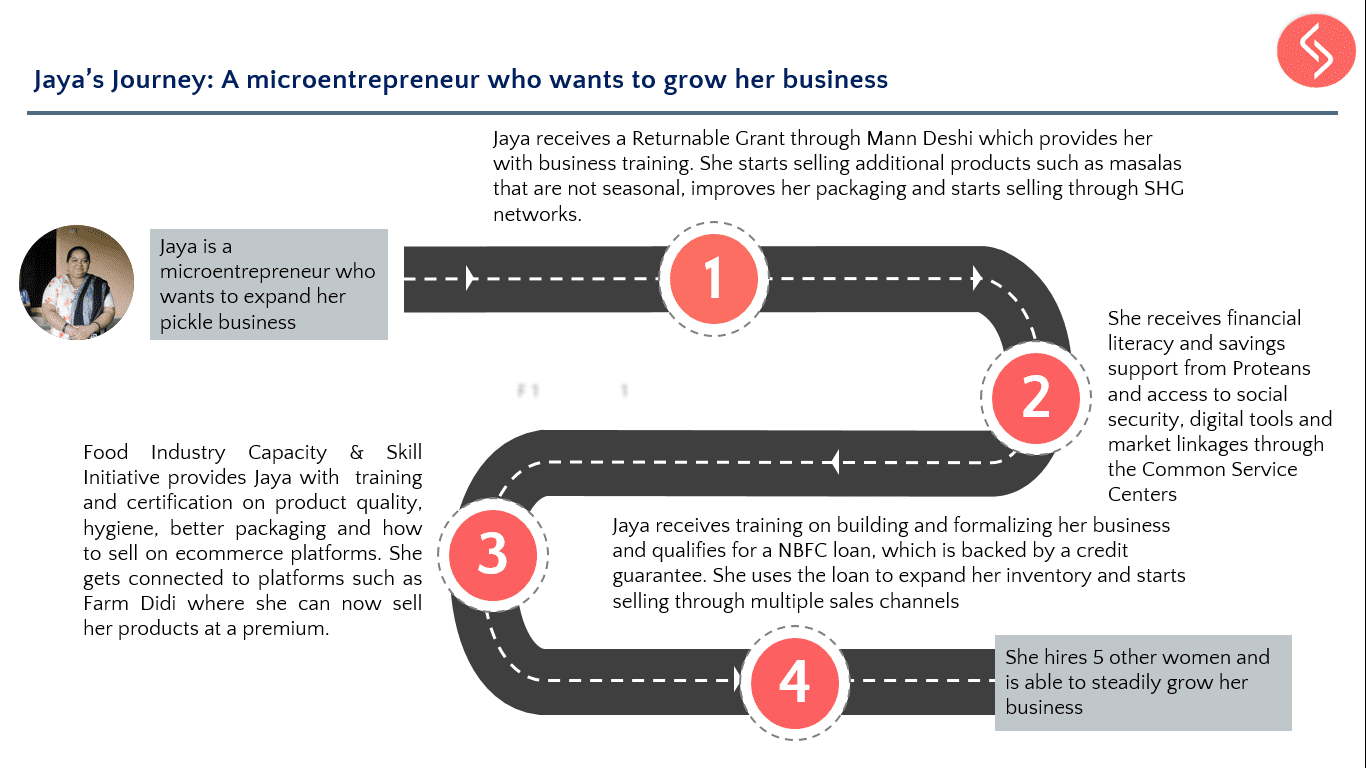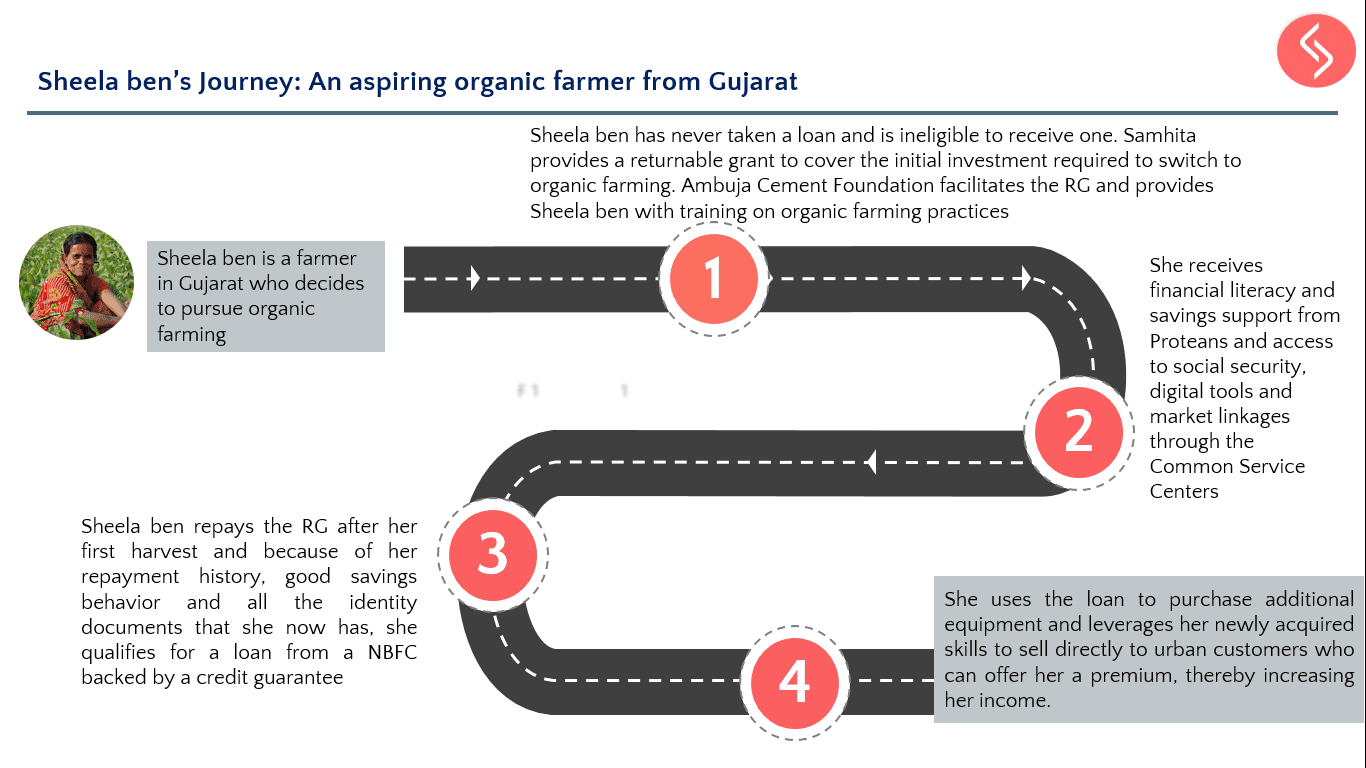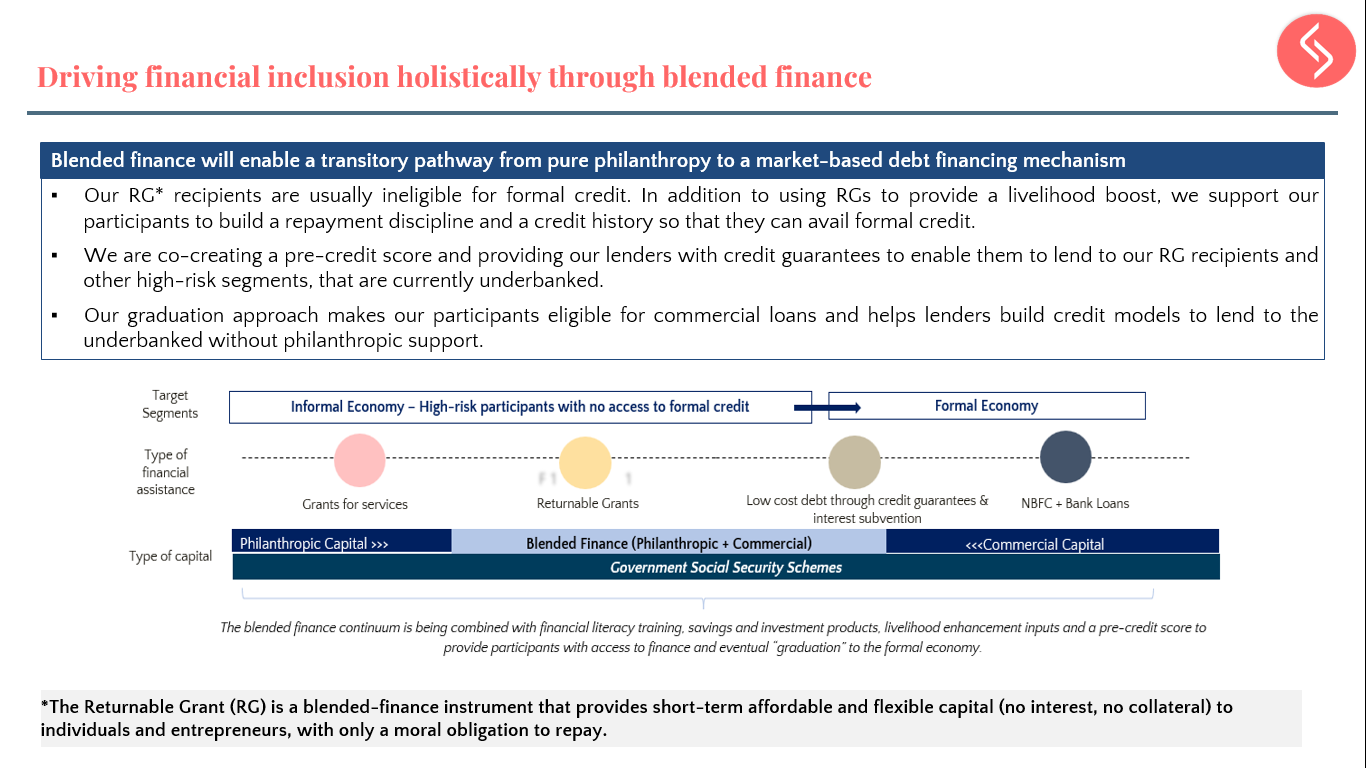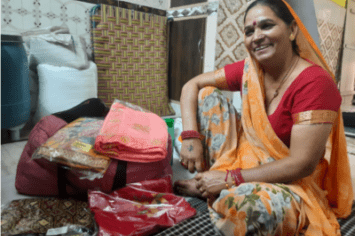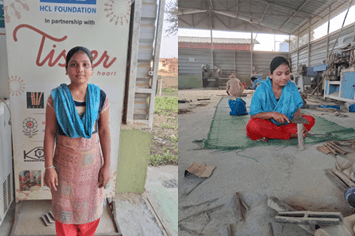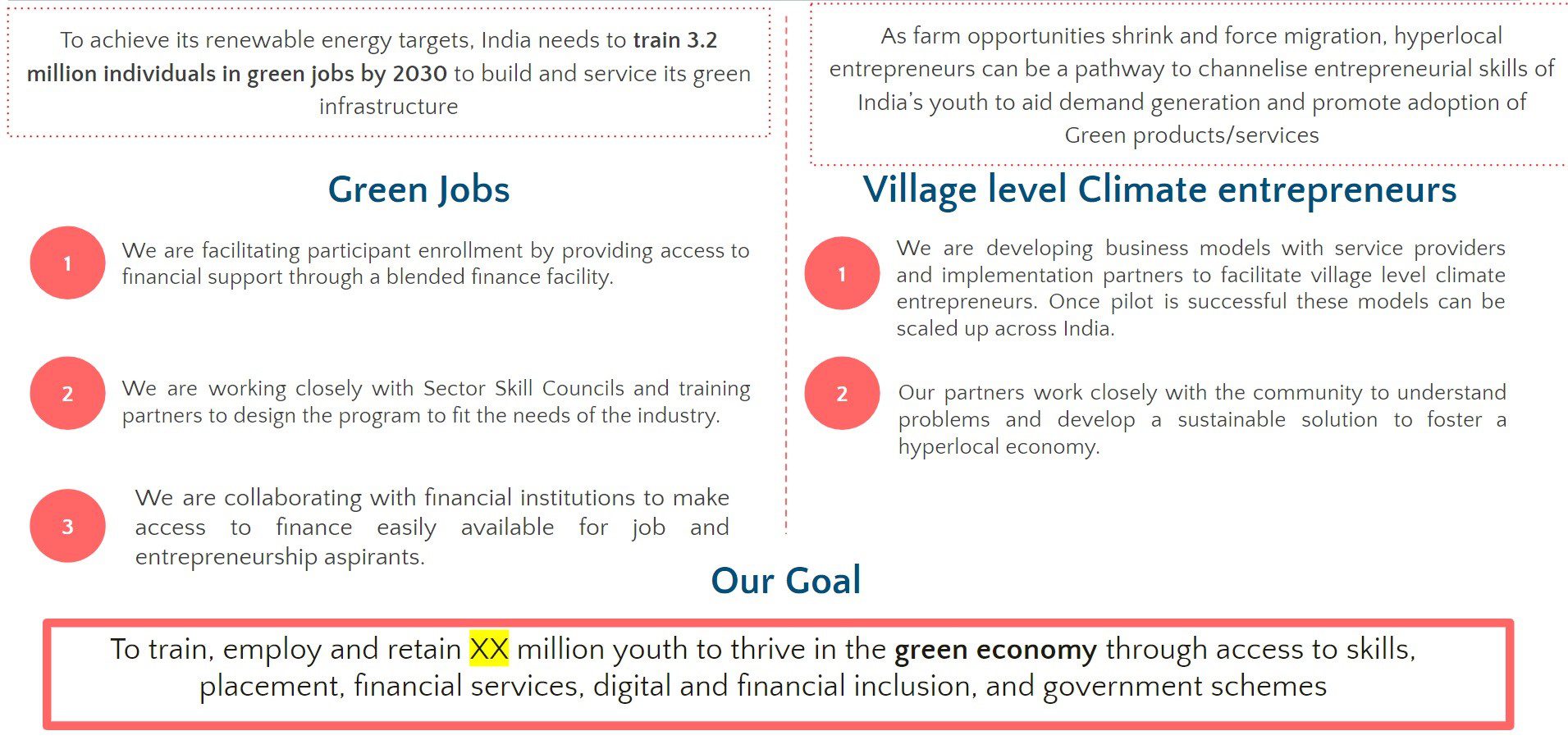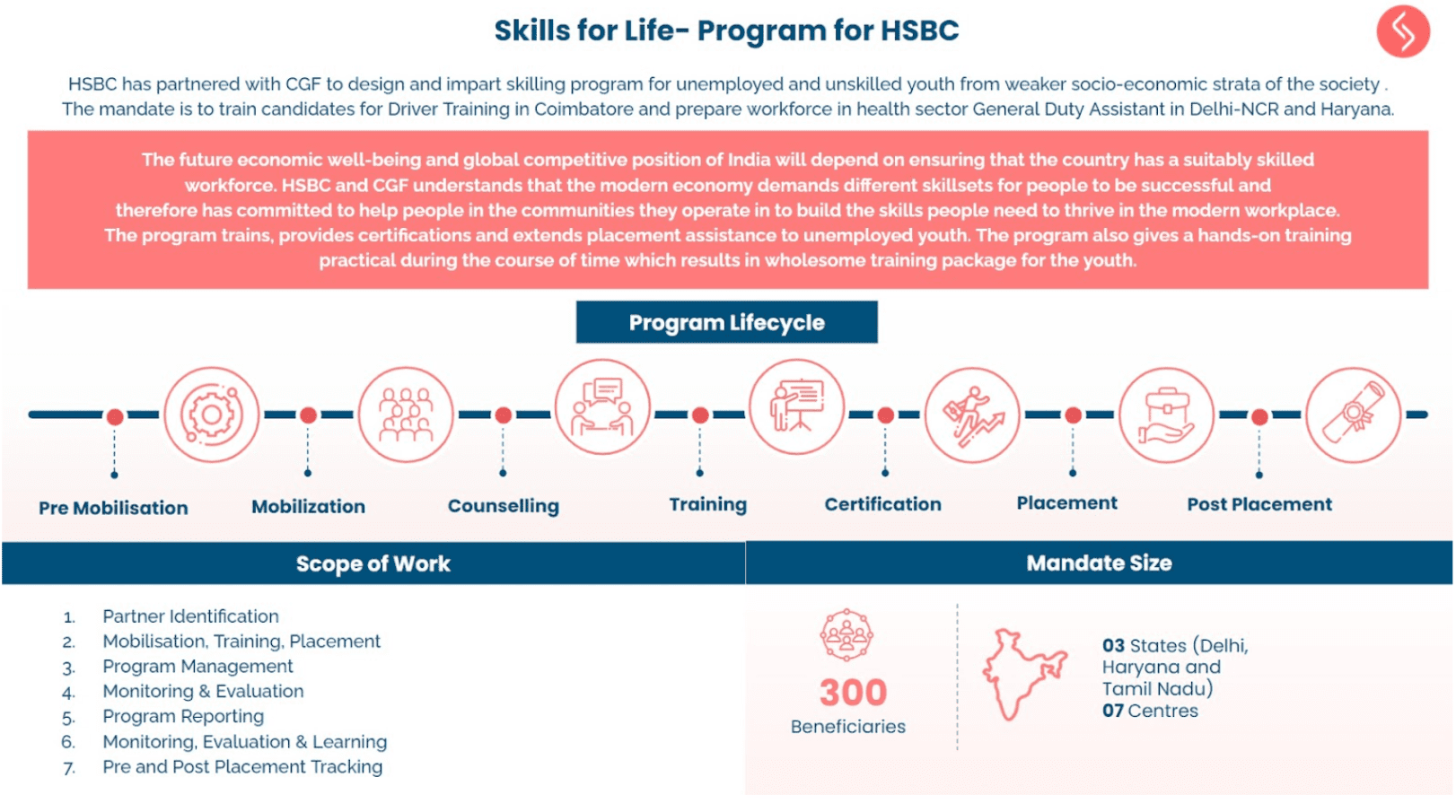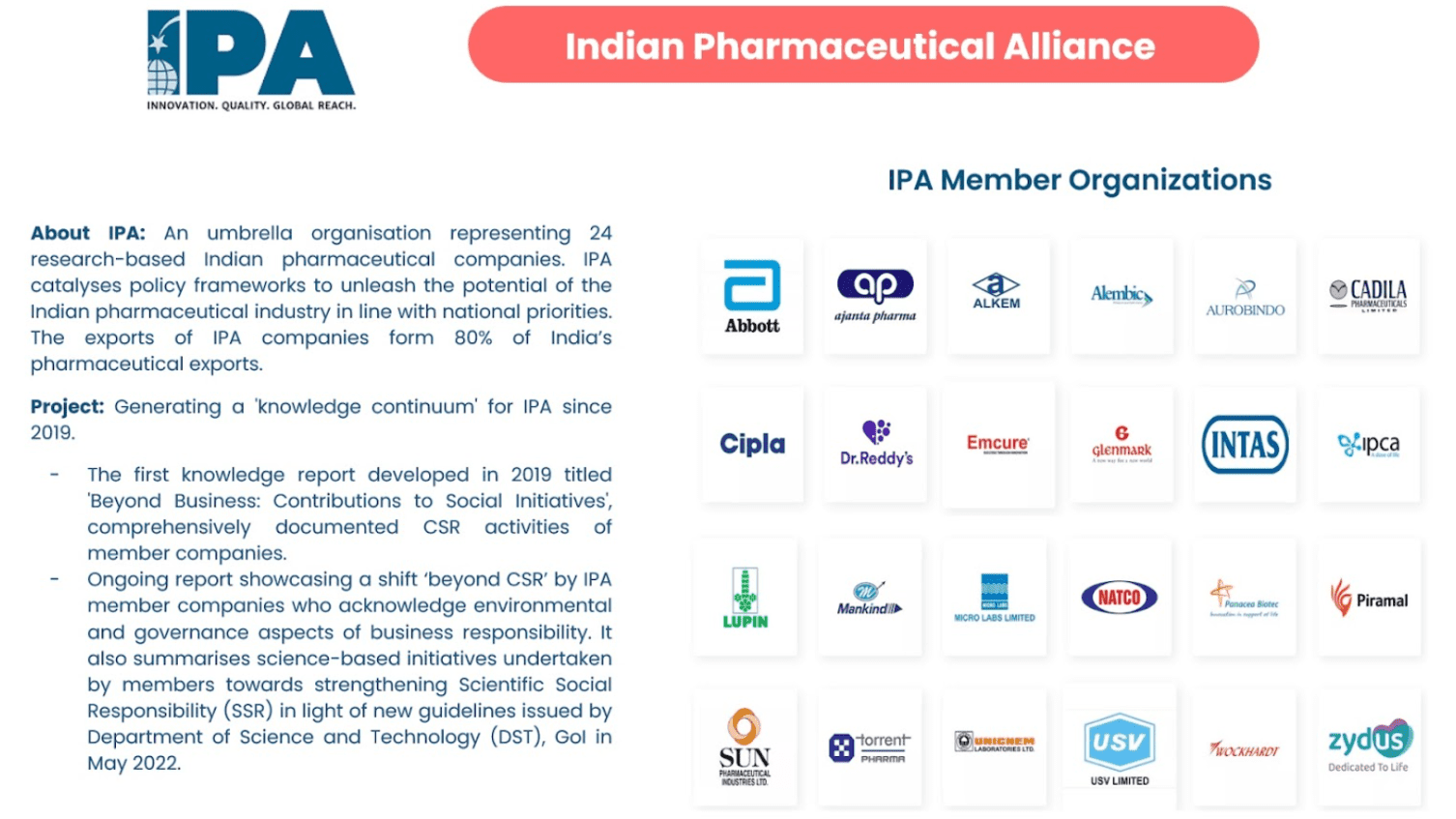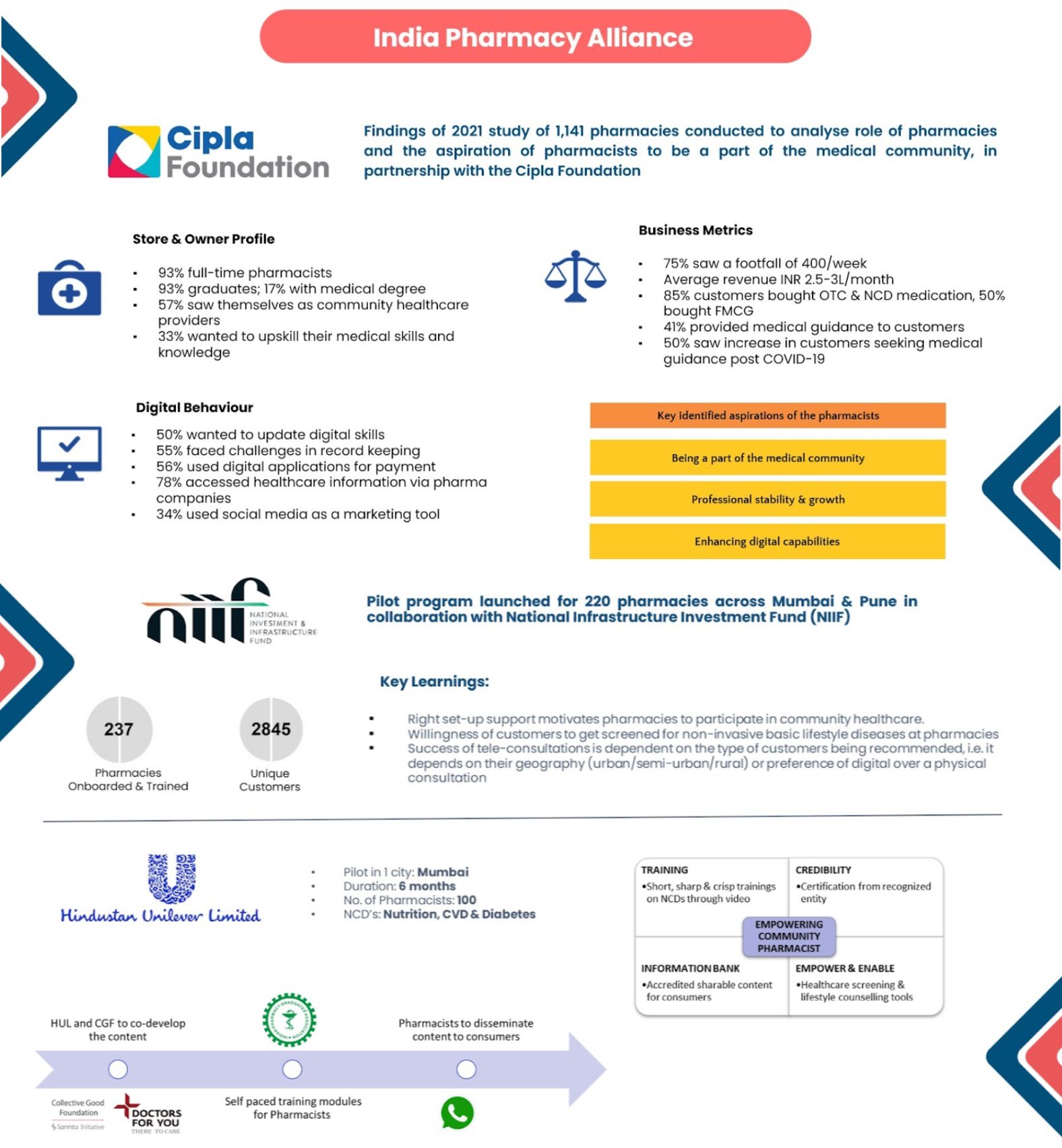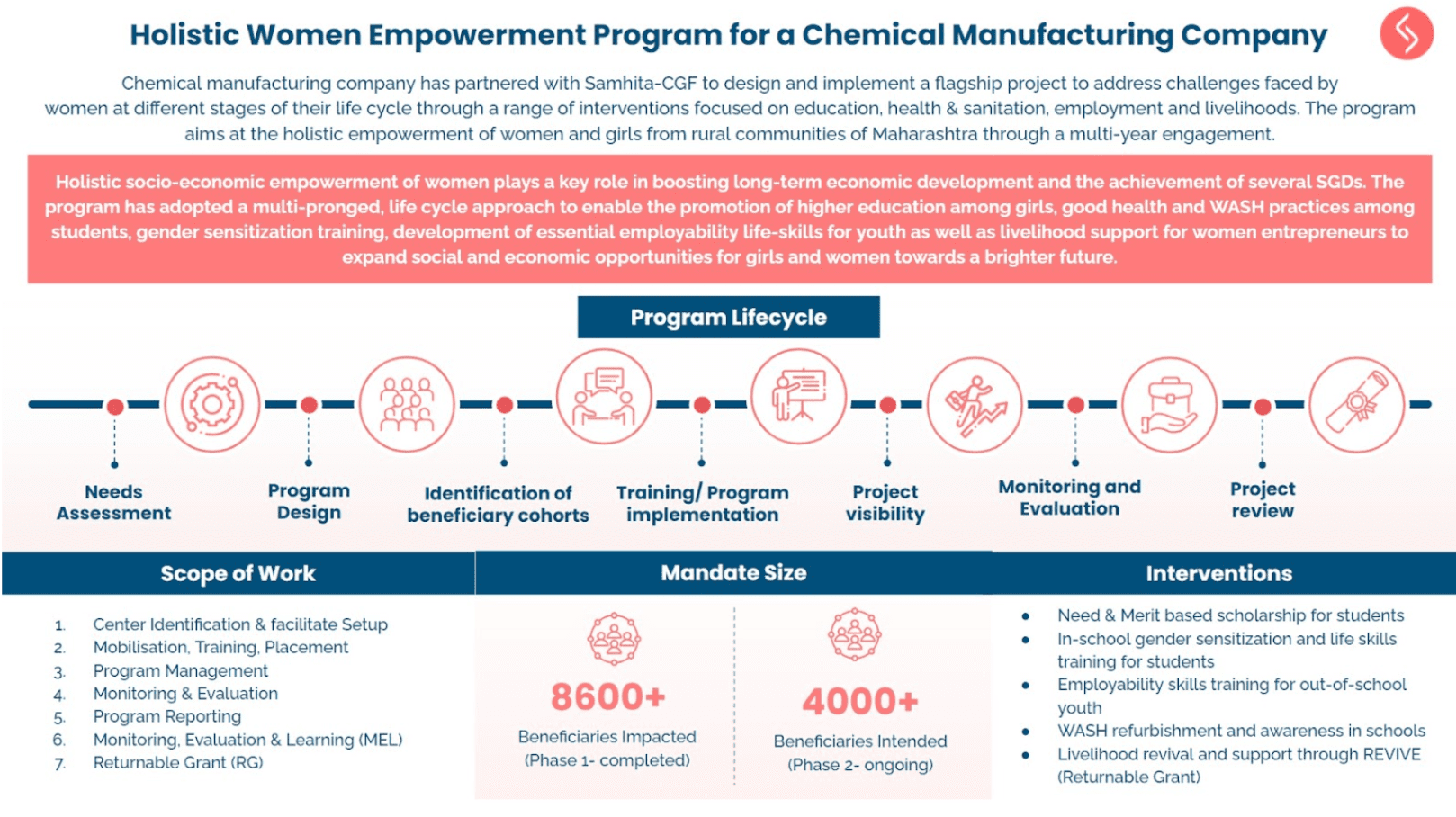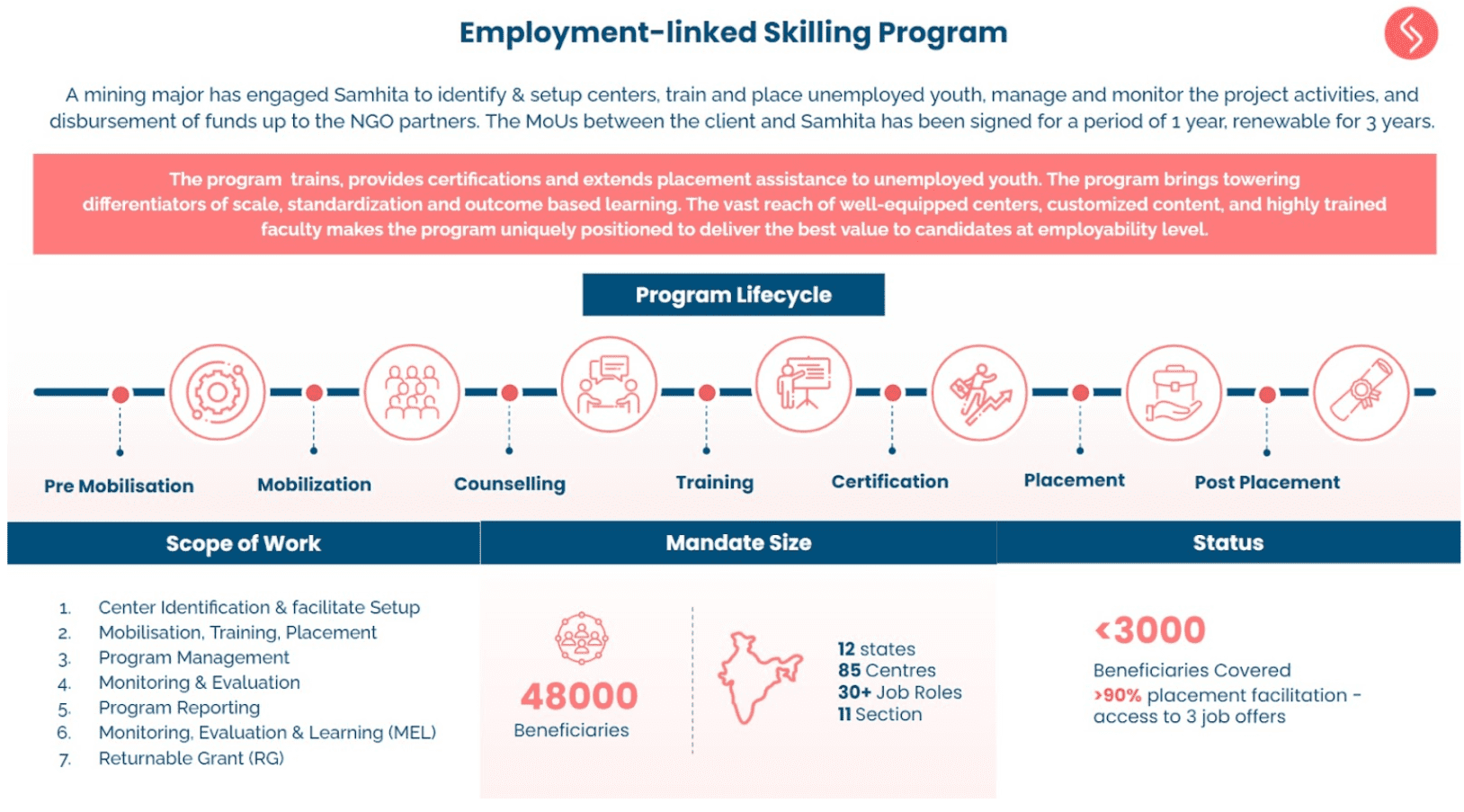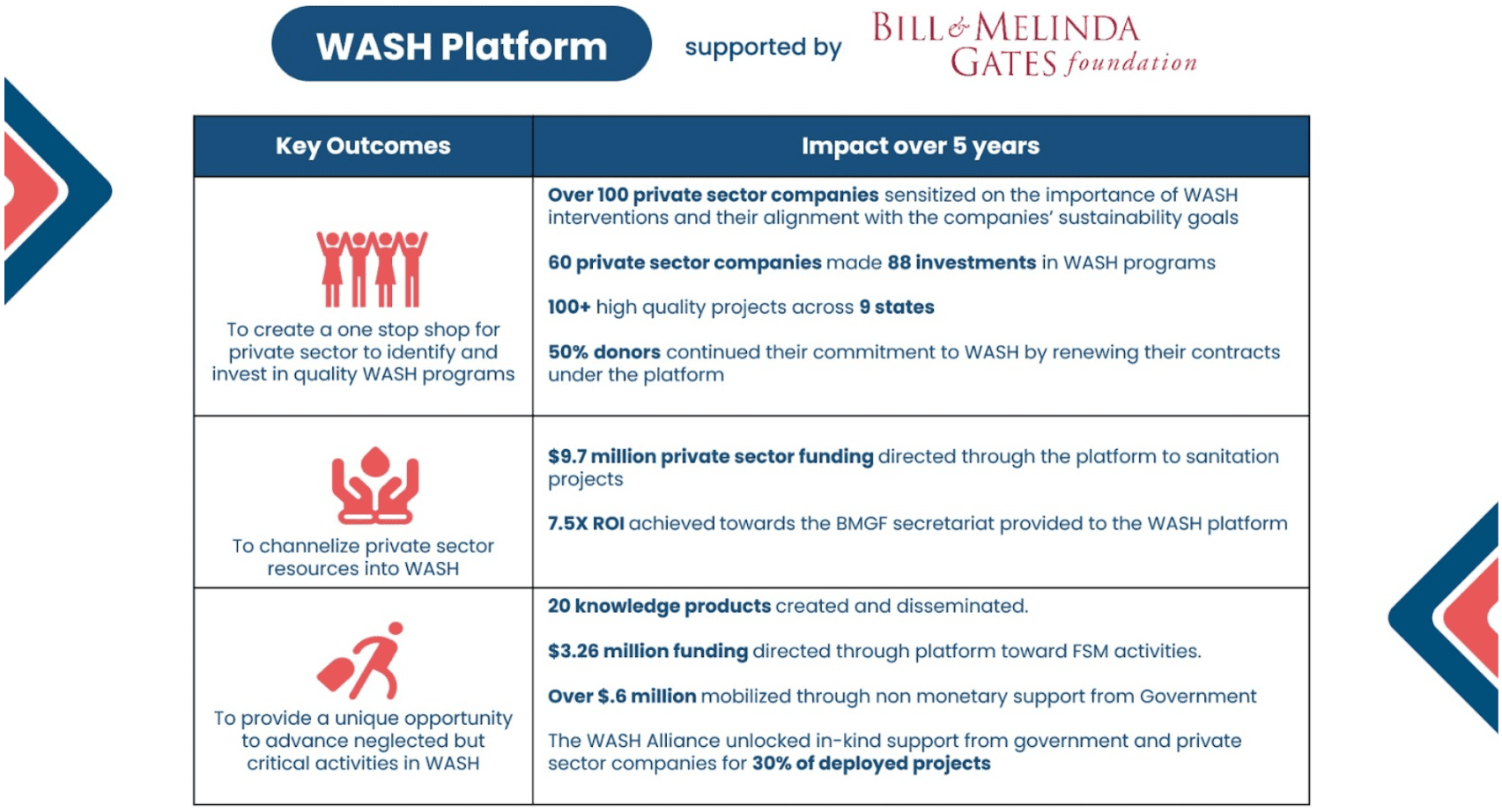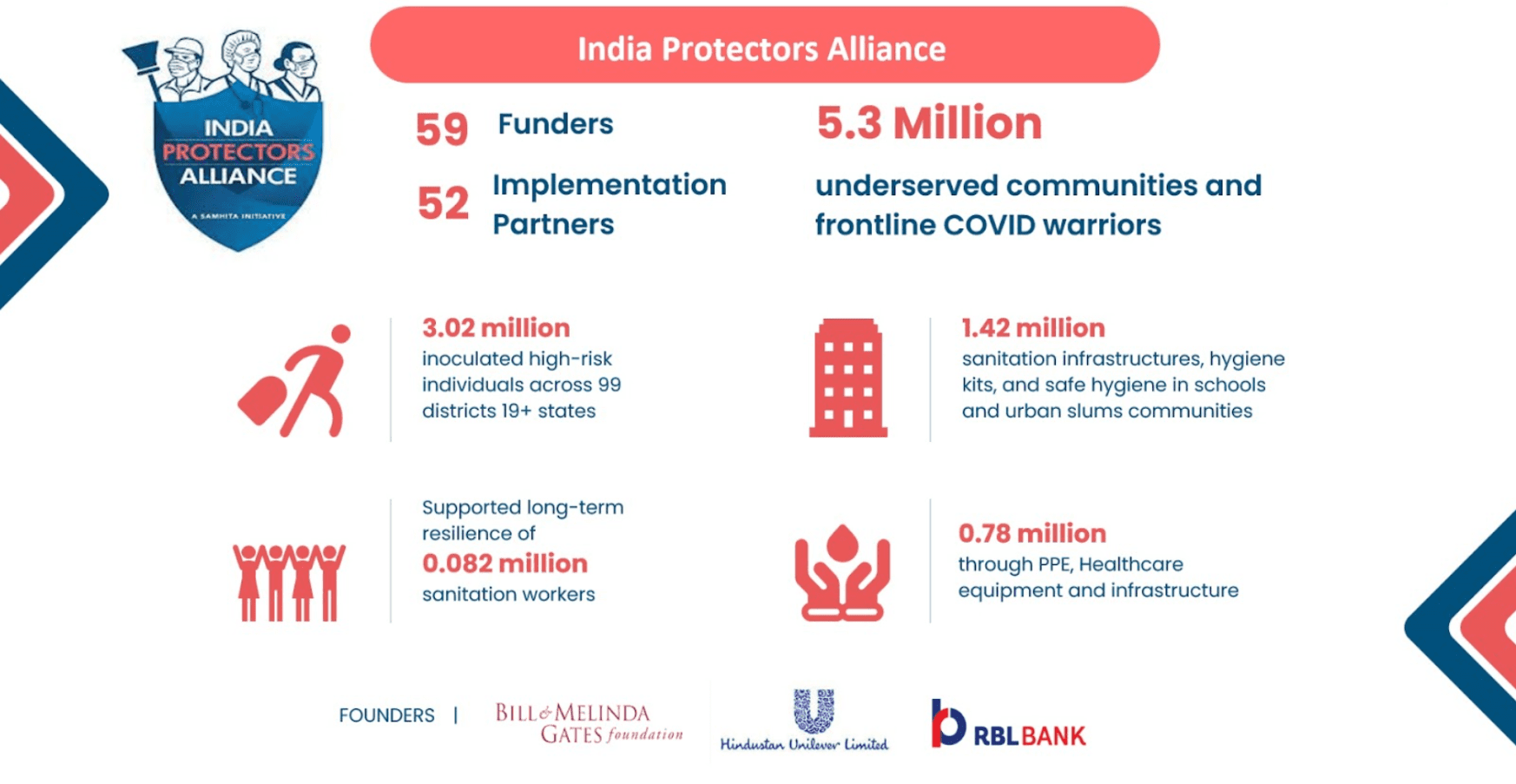In a world striving for new innovations in pursuing holistic financial inclusion, Samhita-CGF takes a bold step forward with its innovative network alliance to bridge the credit gap faced by underbanked communities and micro-entrepreneurs. In partnership with SIDBI, CGTMSE, and NSDC, Samhita-CGF is introducing the Pre-Credit Score (PCS), an innovative credit scoring framework that empowers first-time borrowers. Unlike traditional scoring models, which rely on past credit history, the PCS delves into income and expense patterns, as well as lifestyle indicators, providing a comprehensive view of creditworthiness. This revolutionary approach opens doors for New To Credit (NTC) and New To Business (NTB) segments, offering them access to formal credit.
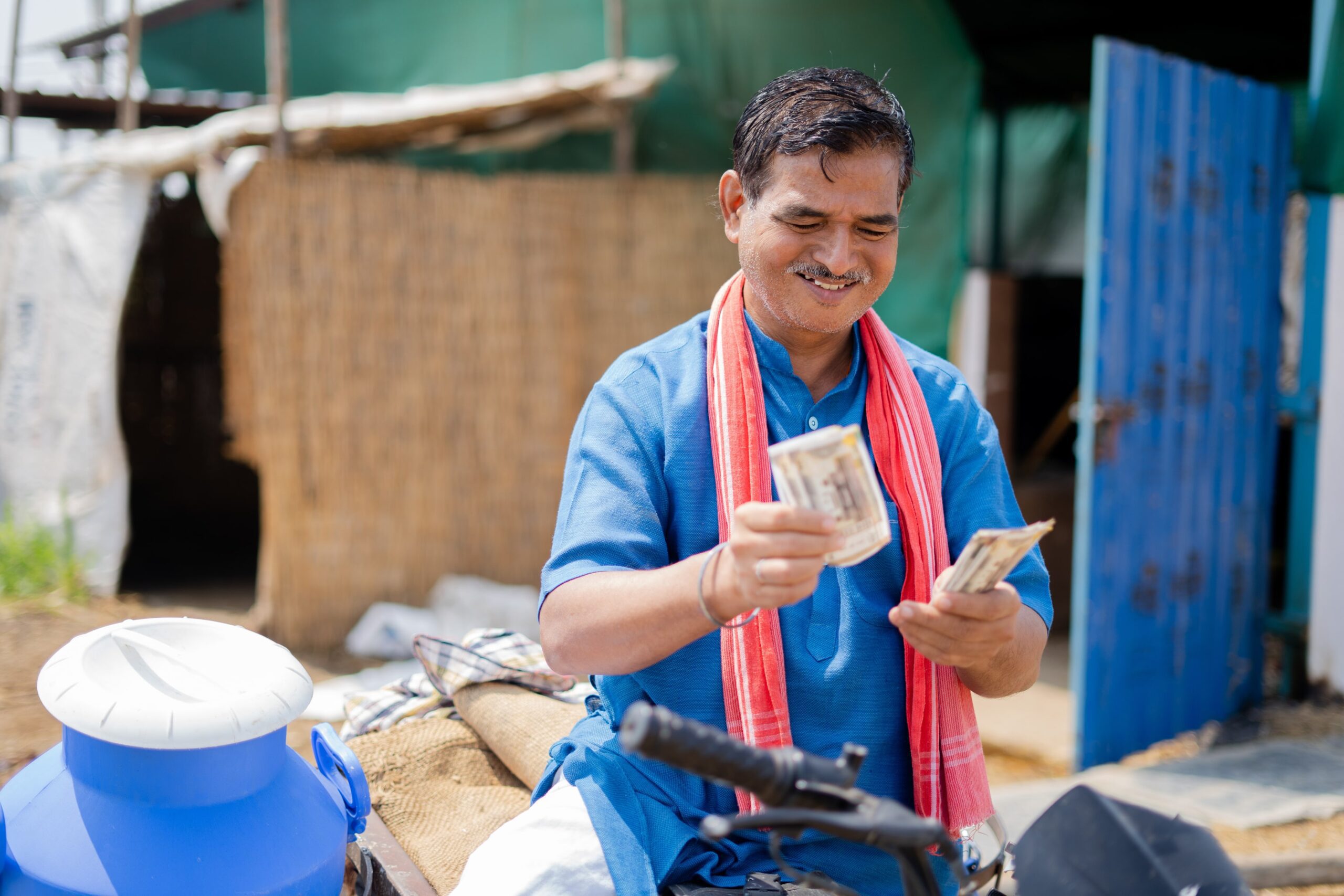
The challenge: Access to commercial capital
As per SIDBI, only 2.5 Cr. or less than 40% of the MSME have ever been provided formal credit, which means over 60% of this sector has no access to formal credit. This glaring credit gap persists, particularly in the informal sector, where businesses are often funded by non-transparent, high-interest informal sources. Further, there is a glaring gender disparity in credit usage. Women in India receive credit equivalent to only 27% of the deposits they contribute, while men receive credit equal to 52% of their deposits.
Lending to underbanked individuals, especially those operating informal enterprises, has been a longstanding challenge. The lack of access to adequate and affordable credit faced by the informal sector enterprises is a typical market outcome of information asymmetry, adverse selection and moral hazard. These enterprises essentially have a ‘thin file’ character, with varying degree of quantity and quality of firm-level financial data.
Samhita-CGF recognizes the critical need to provide access to commercial capital for sustainable livelihoods. Given that the majority of our workforce falls under the informal economy, it is imperative to provide access to commercial capital that is able to create sustainable livelihoods for the unbanked. The pre credit score (PCS) aims to solve this. It assigns a risk-adjusted rating to an informal enterprise, the proprietor and the household. Feeding into the credit-guarantee backed loan, it allows for injection of sufficient growth capital to help alter the subsistence character of the informal enterprise.
Samhita-CGF’s pre-credit score for informal sector
A pre-credit score represents the risk-weighted profile of the informal enterprise proprietor and his/her household. It uses a 4Cs framework – Capacity, Character, Collateral, and Connectivity. Below is a snapshot of the same.
Each of the four aspects offers unique insights into informal businesses, creating a comprehensive picture. It assesses creditworthiness by considering financial resources, educational background and other credentials, possession of assets, and access to digital platforms. The individual indicators within these dimensions work together to gather information about the borrower’s capacity and inclination to repay the loan.
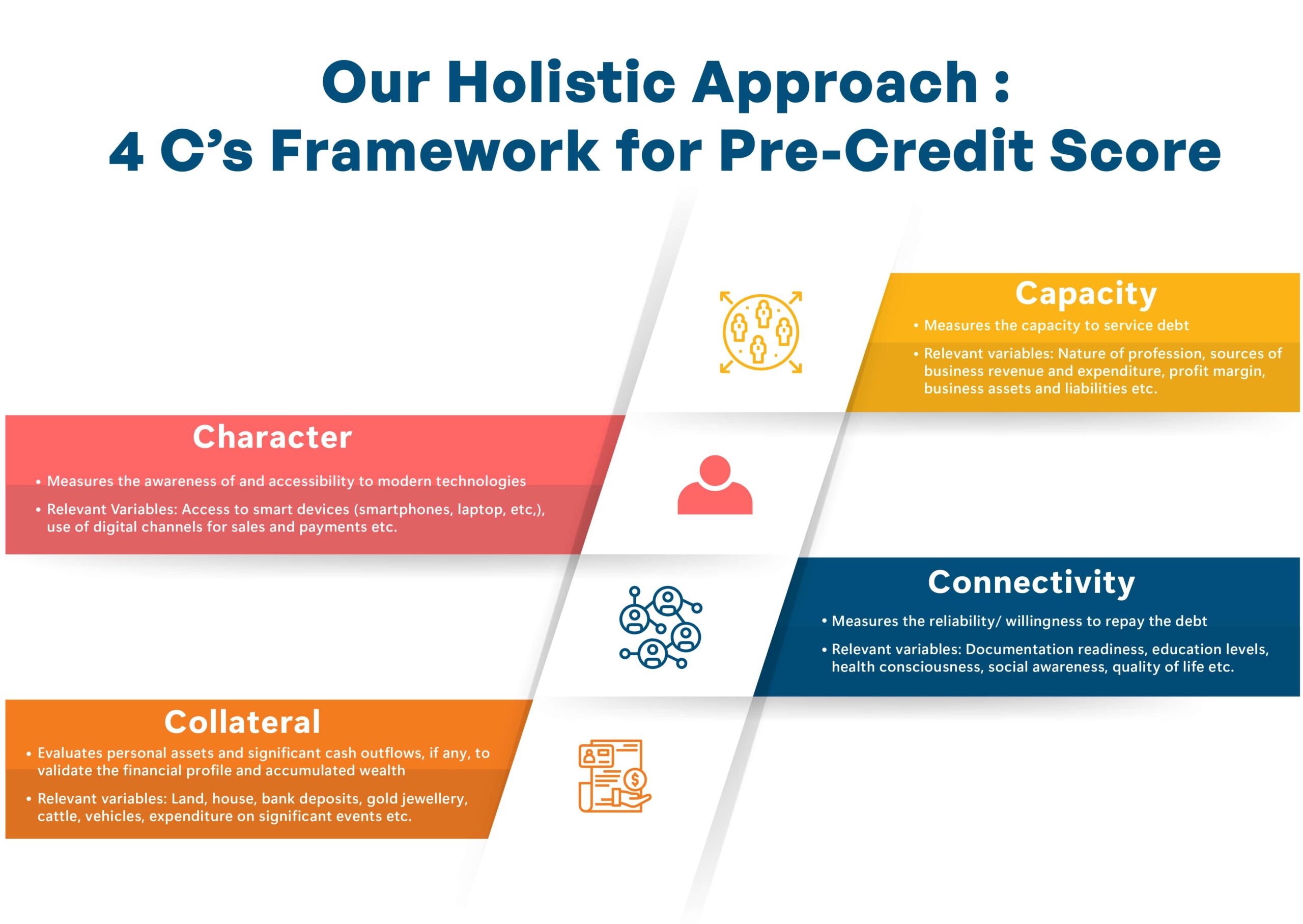
Pre-credit score unlocking commercial capital through credit guarantees
Samhita-CGF envisions a transformed landscape for informal workers and microentrepreneurs, where financial empowerment is not a distant dream, but a tangible reality. Through the REVIVE Alliance, established in 2020, Samhita-CGF has exemplified its unwavering commitment to this cause.
This pioneering initiative stands as one of India’s most substantial philanthropically funded blended finance and livelihood acceleration facilities, expressly designed to uplift individuals and MSMEs operating within the informal sector. With over 5,50,000 informal workers and entrepreneurs, including more than 4,40,000 women, benefiting from REVIVE over the past three years, Samhita-CGF’s impact is a testament to its resolute dedication to promoting economic equity and sustainable livelihoods.
As we aim to irreversibly increase incomes and improve the livelihoods of 2 million participants over the next 3 years, and 10 million workers and MSMEs in 5 years (with at least 50% being women) through multi-year, multi-intervention support of participants. In partnership with CGTMSE, Samhita-CGF are co-creating India’s first new to credit (NTC) and new-to-business (NTB) focused credit guarantee scheme, to support entrepreneurs obtain access to formal credit. While credit guarantee schemes are not new to India, this scheme will be targeted to supporting only NTC and NTB entrepreneurs to provide a pathway to graduation to the formal economy.
Through this systematic approach, we aim to not only facilitate the graduation of small businesses into the formal economy, but also provide evidence to demonstrate the creditworthiness of these segments as a whole and create a new market for formal lending for banks, NBFCs, and other FIs. Our co-created PCS will be used as a proxy for a formal credit rating and be required as a scheme prerequisite.
Samhita-CGF’s pre-credit score framework is a beacon of hope for millions in the informal sector. By extending lending opportunities, we aim to create sustainable livelihoods and promote economic equity. The initiative draws inspiration from data-driven insights and embraces collaborative synergy with external partners and industry experts to build a robust scoring model.
This article was authored by Varnika Jain and Abhishek Gupta










